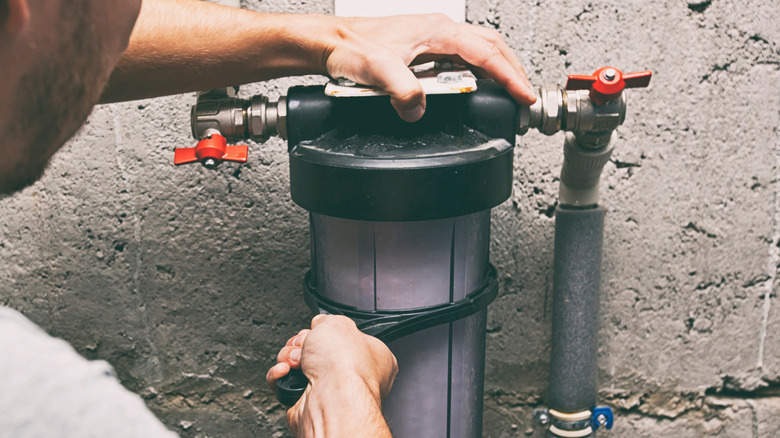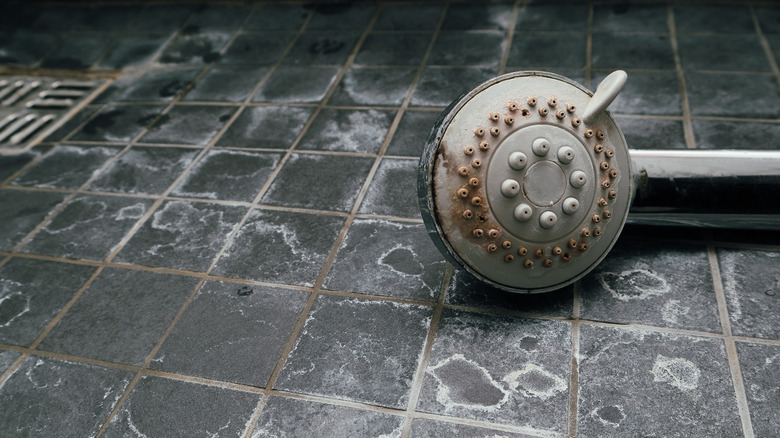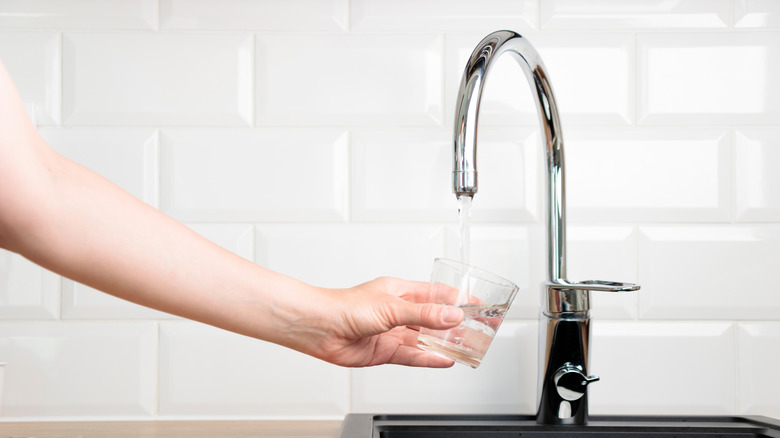How Much A Whole House Water Filtration System Could Cost (And If It's Worth It)
Does your water taste a little funky? Does it smell like chlorine? A whole house water filtration system, which is installed where your main water line enters your house, may be the solution.
Whether you have city water, which often contains chlorine, or well water, which may be high in sulfur or iron, a whole house water filtration system can help reduce contaminants in your water supply. However, depending on the level of protection you need, it will not be cheap. While installation costs vary from region to region — depending on what a skilled plumber in your area is worth — the systems themselves typically cost at least $850 and go up to several thousand dollars.
Despite a potentially steep price tag, the cost may be worth it since the benefits of one of these systems can be numerous and may even save you money in other areas of your life. Remember to always ask questions before hiring a plumber, as selecting an inexpensive but unskilled person to install your system may cost more in the long run because of repairs and other issues.
The benefits of whole house water filtration systems
The type of whole house filter you choose will be tied to what a water testing kit reveals about your drinking water. For some people, pesticides and other chemical contaminants that can greatly impact your health may be an issue, which makes cleaning your water an urgent concern. In other cases, your water may simply have high levels of naturally occurring iron or sulfur.
A sediment filter can help remove large particles like dust or clay, while an activated carbon filter uses natural materials to absorb chemical contaminants. UV filters use ultraviolet light to remove E. coli and other microorganisms from the water supply. Homeowners can combine these different types of filters to provide more protection. Meanwhile, reverse osmosis systems use a semi-permeable membrane that allows only water particles through the barrier, removing almost all contaminants on its own.
For those battling with bothersome but not dangerous hard water from naturally occurring minerals, a water softening or conditioning system may get the job done with a potentially smaller price tag. Weighing your needs against the cost will ultimately guide the decision-making process.
Is a whole house water filtration system worth it?
Whole house water filtration systems can vary widely in cost. A whole house reverse osmosis system can start at $750 for a small house and go all the way up to $7,500. Estimates for other systems also range significantly, depending on which types you choose and how many you combine. They can range from less than $1,000 to more than $5,000.
Sulfur can cause your water to smell like rotten eggs, and iron and other minerals can cause hard water. These nuisances may be annoying but are not typically significant health concerns. In fact, hard water can have some health benefits as a source of magnesium and calcium. Homeowners will have to carefully consider their needs before choosing a solution. If hard water is your only issue, it may be more cost effective to just learn a few hacks to remove hard water stains.
However, if water tests reveal worrying chemicals in your drinking water, it may be worth it to install a filtration system that protects your family from a wider range of contaminants. Homeowners with unhealthy drinking water often end up paying for bottled water, a cost that can add up over time. For some, a point-of-use filter at your kitchen faucet may provide enough peace of mind. For others, the potential health consequences and associated costs of drinking harmful contaminants make it worth the investment in a whole house water filtration system to know your drinking water is safe.


